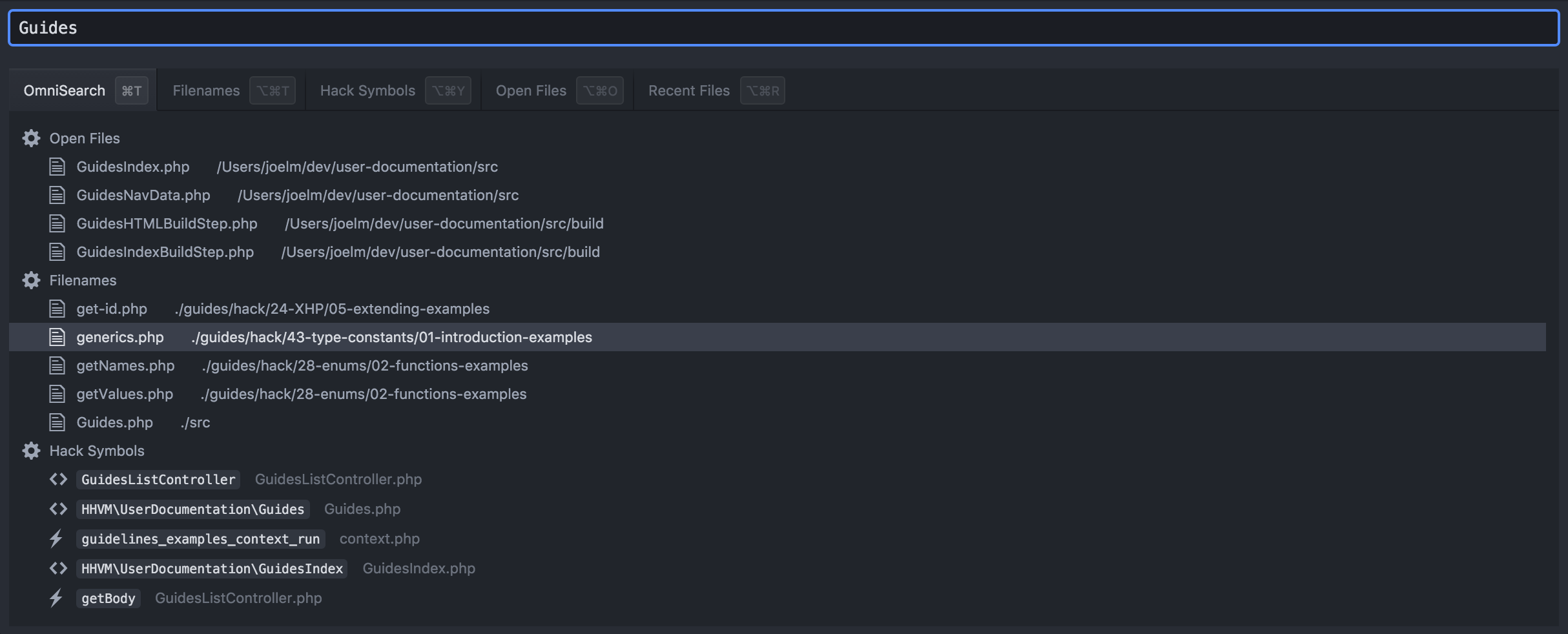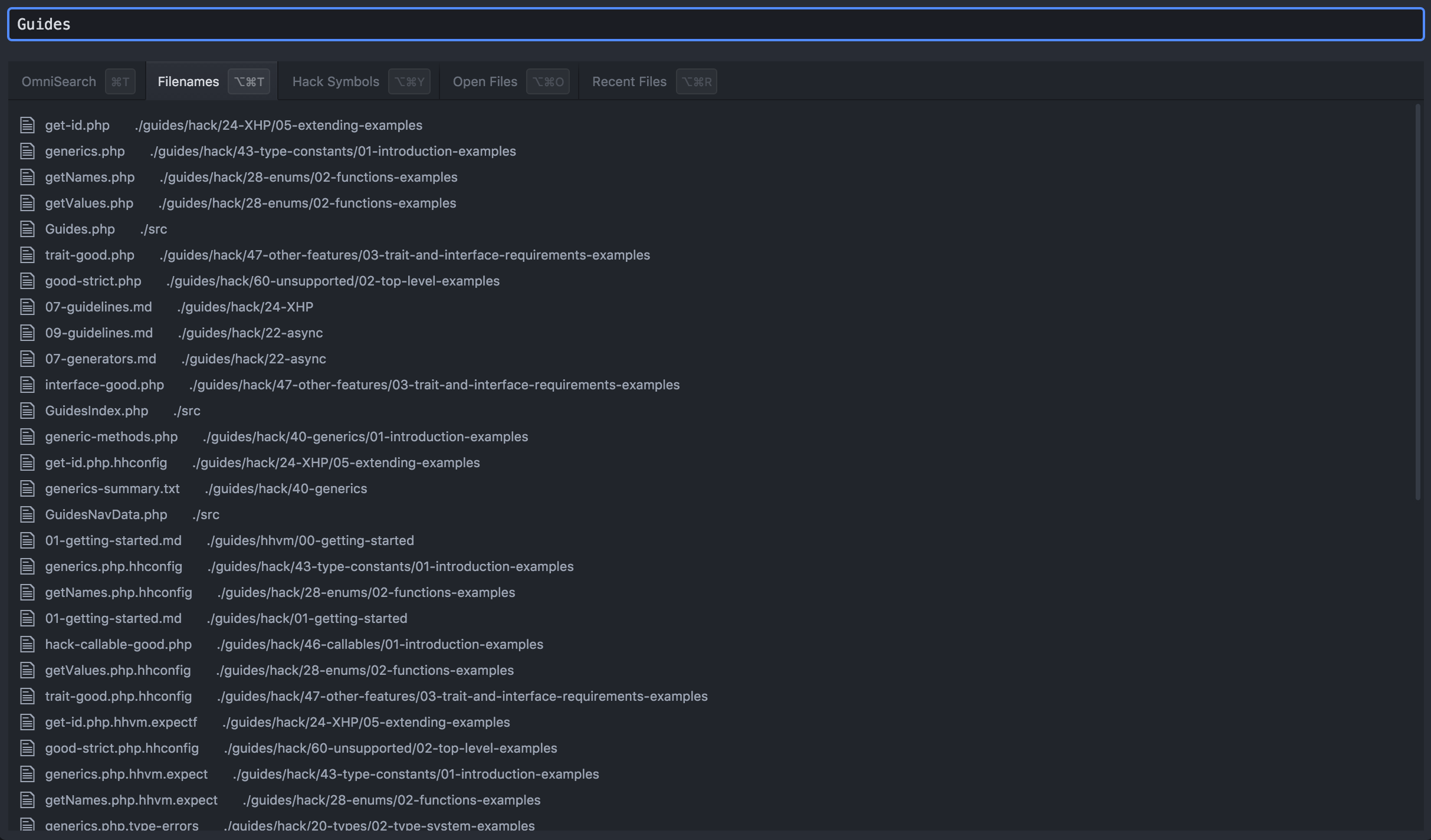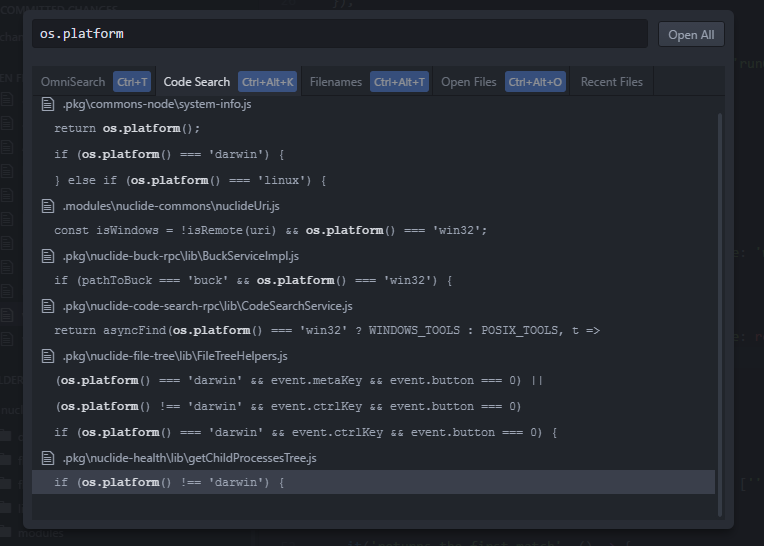Quick Open
Nuclide goes beyond just normal file opening capabilities. Quick Open provides multiple mechanisms to find a file, from recently opened files to a global OmniSearch that lets you search for anything a file might contain.
Toggling
There are three ways to toggle the Quick Open window.
- The
Cmd-T(macOS) orCtrl-T(Linux) keyboard shortcuts - Command palette searching for
Nuclide Quick Open: Find Anything Via Omni Search - Quick Launch Menu

The
Hack Symbolspane will only show if you have Hack files in your project.
OmniSearch
Keyboard Shortcuts: Cmd-T or Cmd-P (Ctrl-T or Ctrl-P on Linux)
When launching the Quick Open window, you will be taken to the OmniSearch tab. All of the features of the other tabs are coalesced and condensed into your search results in this tab.

Filenames
Keyboard Shortcut: Option-Cmd-T (Alt-Ctrl-T Linux)
If you just want to search by filename (including within the path to the file) only, you can click on the Filenames tab in the Quick Open window.

Open Files
Keyboard Shortcut: Option-Cmd-O (Alt-Ctrl-O Linux)
If you have a lot of files open in your editor, you can use the Open Files tab of Quick Open to quickly scan a list of your currently open files.

Recent Files
Keyboard Shortcut: Option-Cmd-R (Alt-Ctrl-R Linux)
If you have recently closed a file and would like to quickly open it back up, you can use the Recent Files tab of Quick Open. This tab also displays when you last opened the file(s).

Hack Symbols
Keyboard Shortcut: Option-Cmd-Y (Alt-Ctrl-Y Linux)
If your project contains Hack code, you will get Hack language-specific
search options. Here you can search based on function (@function-name), class (#class-name), or
constant (%constant-name) symbols in your project.
To access this feature, click on the Hack Symbols tab in the Quick Open window.

Code Search
Keyboard Shortcut: Option-Cmd-K (Alt-Ctrl-K Linux)
The Code Search tab will help you find a piece of code within all the source files in your projects. Internally it uses either ripgrep (rg), silversearcher (ag) or ack.
By default, Nuclide will use any available tool in your PATH. However, you can specify a default one in the nuclide-code-search tab in the Nuclide package settings. We recommend ripgrep and ag because they are blazing fast. Sadly, only ripgrep works properly on Windows.

